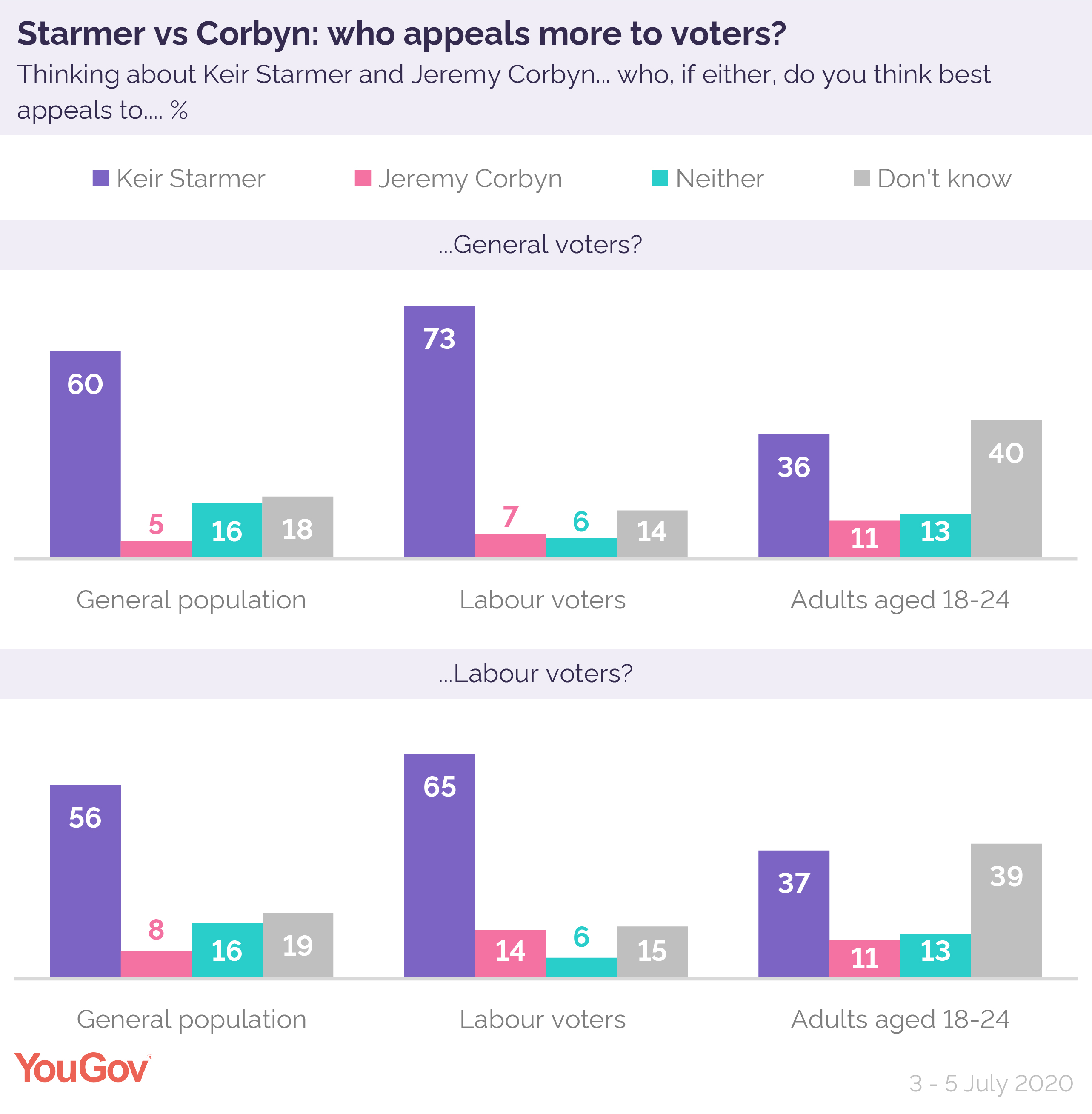A lot of people of a certain political persuasion will be reading this and saying 'great', but there's not a lot of good news for Labour here.
Firstly, the polling isn't asking whether these similarities are good or bad, just whether there are similarities. So whilst some (including the talking heads who supplied the quotes) are reading 'similar to Tony Blair' and choosing to interpret that as a good thing, there's no guarantee those polled intended it as a compliment (YouGov data states that 21% of people polled in 2019 and 2020 held a positive opinion of Blair, and 54% held a negative opinion (compare to 23% and 60% for Corbyn)). Unless this data is qualified with data as to what proportion of the respondents perceive Blair positively/negatively, it's useless as a benchmark of how good a job Starmer is doing or will do going forwards. Those wanting a prediction with any sort of solid methodological backing should be asking for data on public opinion re: Starmer after 100 days to be compared to equivalent data collected following Blair's 100th day as Labour leader (or Corbyn's/Milliband's/Brown's).
Secondly, it's hugely worrying for Labour that Starmer's leadership of the party is seen as a clear break from Corbyn and they're still substantially behind the Conservatives in the polls. What that suggests is that the public feel that the issues preventing them voting Labour run a lot deeper than the leader. The talking heads in the article have embraced a satisfying fiction that they will be able to attribute their current and future failures to Corbyn, but the evidence doesn't back that up. If Labour's problems were widely believed by the electorate to have stemmed from Corbyn's leadership, we'd expect 2017 and 2019 to to return a lower Labour vote-share than 2010 and 2015 - which it didn't. We'd also expect a significant bounce now Corbyn is gone, which hasn't come to pass.
What we're seeing with Starmer isn't a return to the glory days of New Labour in 1997- a young party with exciting ideas capturing a renaissant national optimism, it's a return to the nadir of New Labour in 2010 and 2015 - a party of uninspiring professional politicians shackled by association with an unpopular spell in government and perceived fiscal incompetence.



